
Edward Osborne Wilson was an American biologist, naturalist, ecologist, and entomologist known for developing the field of sociobiology.
Sociobiology is a field of biology that aims to explain social behavior in terms of evolution. It draws from disciplines including psychology, ethology, anthropology, evolution, zoology, archaeology, and population genetics. Within the study of human societies, sociobiology is closely allied to evolutionary anthropology, human behavioral ecology, evolutionary psychology, and sociology.

Theodosius Grigorievich Dobzhansky was an American geneticist and evolutionary biologist. He was a central figure in the field of evolutionary biology for his work in shaping the modern synthesis and also popular for his support and promotion of theistic evolution as a practicing Christian. Born in the Russian Empire, Dobzhansky immigrated to the United States in 1927, aged 27.

In biology, a weapon is a specialized physical trait that is used by animals to compete with other individuals for resources. Most commonly, the term refers to structures that males use to fight other males off for access to mates. They can also be used to defend resources in intraspecific competition, or to ward off predators. Examples of weapons include horns and antlers, both among the most recognizable weapons, though even within those categories, the structure of the specific weaponry is often unique to the species, with a wide variety of designs observed across many genera.

Natural history is a domain of inquiry involving organisms, including animals, fungi, and plants, in their natural environment, leaning more towards observational than experimental methods of study. A person who studies natural history is called a naturalist or natural historian.
The history of zoology before Charles Darwin's 1859 theory of evolution traces the organized study of the animal kingdom from ancient to modern times. Although the concept of zoology as a single coherent field arose much later, systematic study of zoology is seen in the works of Aristotle and Galen in the ancient Greco-Roman world. This work was developed in the Middle Ages by Islamic medicine and scholarship, and in turn their work was extended by European scholars such as Albertus Magnus.
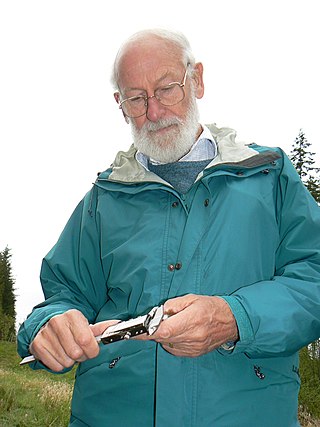
Peter Raymond Grant and Barbara Rosemary Grant are a British married couple who are evolutionary biologists at Princeton University. Each currently holds the position of emeritus professor. They are known for their work with Darwin's finches on Daphne Major, one of the Galápagos Islands. Since 1973, the Grants have spent six months of every year capturing, tagging, and taking blood samples from finches on the island. They have worked to show that natural selection can be seen within a single lifetime, or even within a couple of years. Charles Darwin originally thought that natural selection was a long, drawn out process but the Grants have shown that these changes in populations can happen very quickly.
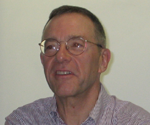
Douglas Joel Futuyma is an American evolutionary biologist. He is a Distinguished Professor in the Department of Ecology and Evolution at Stony Brook University in Stony Brook, New York and a Research Associate on staff at the American Museum of Natural History in New York City. His research focuses on speciation and population biology. Futuyma is the author of a widely used undergraduate textbook on evolution and is also known for his work in public outreach, particularly in advocating against creationism.
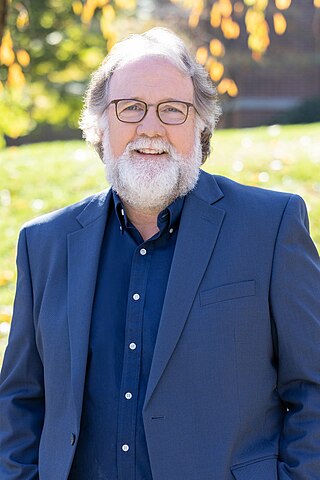
Sean B. Carroll is an American evolutionary developmental biologist, author, educator and executive producer. He is a distinguished university professor at the University of Maryland and professor emeritus of molecular biology and genetics at the University of Wisconsin–Madison. His studies focus on the evolution of cis-regulatory elements in the regulation of gene expression in the context of biological development, using Drosophila as a model system. He is a member of the National Academy of Sciences, of the American Philosophical Society (2007), of the American Academy of Arts and Sciences and the American Association for Advancement of Science. He is a Howard Hughes Medical Institute investigator.
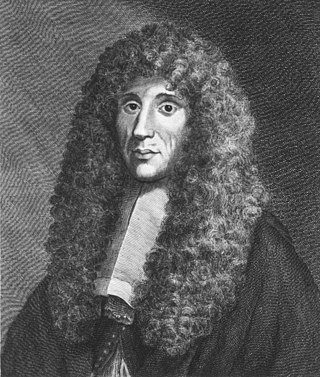
A biologist is a scientist who conducts research in biology. Biologists are interested in studying life on Earth, whether it is an individual cell, a multicellular organism, or a community of interacting populations. They usually specialize in a particular branch of biology and have a specific research focus.
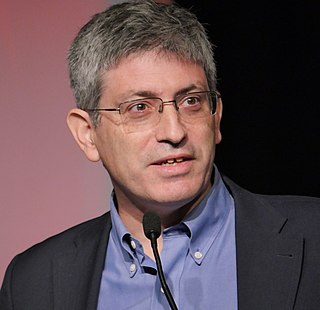
Carl Zimmer is a popular science writer, blogger, columnist, and journalist who specializes in the topics of evolution, parasites, and heredity. The author of many books, he contributes science essays to publications such as The New York Times, Discover, and National Geographic. He is a fellow at Yale University's Morse College and adjunct professor of molecular biophysics and biochemistry at Yale University. Zimmer also gives frequent lectures and has appeared on many radio shows, including National Public Radio's Radiolab, Fresh Air, and This American Life.

The Japanese rhinoceros beetle, also known as the Japanese rhino beetle, the Japanese horned beetle, or by its Japanese name kabutomushi, is a species of rhinoceros beetle. They are commonly found in continental Asia in countries such as China, the Korean peninsula, Japan, and Taiwan. In these areas, this species of beetle is often found in broad-leaved forests with tropical or sub-tropical climates. This beetle is well known for the prominent cephalic horn found on males. Male Japanese rhinoceros beetles will use this horn to fight other males for territory and access to female mating partners. Upon contact, males will attempt to flip each other onto their backs or off of their feeding tree. In response to selective pressures, smaller male A. dichotoma have adapted a "sneak-like behavior". These smaller beetles will attempt to avoid physical confrontation with larger males and try to mate with females.
Thomas Eisner was a German-American entomologist and ecologist, known as the "father of chemical ecology." He was a Jacob Gould Schurman Professor of Chemical Ecology at Cornell University, and Director of the Cornell Institute for Research in Chemical Ecology (CIRCE). He was a world authority on animal behavior, ecology, and evolution, and, together with his Cornell colleague Jerrold Meinwald, was one of the pioneers of chemical ecology, the discipline dealing with the chemical interactions of organisms. He was author or co-author of some 400 scientific articles and seven books.
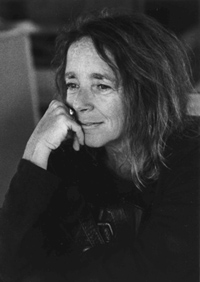
Ursula W. Goodenough is a retired Professor of Biology Emerita at Washington University in St. Louis, where she researched on eukaryotic algae. She authored the textbook Genetics and the best-selling book The Sacred Depths of Nature and speaks regularly about religious naturalist orientation and evolution. She contributed to the NPR blog 13.7: Cosmos & Culture from 2009 to 2011.
John Tyler Bonner was an American biologist who was a professor in the Department of Ecology and Evolutionary Biology at Princeton University. He was a pioneer in the use of cellular slime molds to understand evolution and development over a career of 40 years and was one of the world's leading experts on cellular slime moulds. Arizona State University says that the establishment and growth of developmental-evolutionary biology owes a great debt to the work of Bonner's studies. His work is highly readable and unusually clearly written and his contributions have made many complicated ideas of biology accessible to a wide audience.
Mary Jane West-Eberhard is an American theoretical biologist noted for arguing that phenotypic and developmental plasticity played a key role in shaping animal evolution and speciation. She is also an entomologist notable for her work on the behavior and evolution of social wasps.
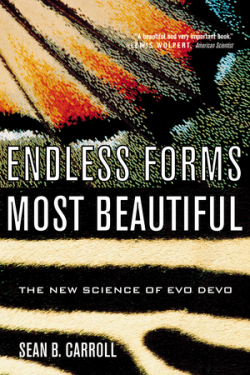
Endless Forms Most Beautiful: The New Science of Evo Devo and the Making of the Animal Kingdom is a 2005 book by the molecular biologist Sean B. Carroll. It presents a summary of the emerging field of evolutionary developmental biology and the role of toolkit genes. It has won numerous awards for science communication.

Onthophagus taurus, the taurus scarab, is a species of dung beetle in the genus Onthophagus and the family Scarabaeidae. Also known as the bull-headed dung beetle, it is a species that specializes in cattle dung and is widely utilized to maintain clean pastures, making it agriculturally valuable. These beetles are typically 8–10 millimetres (0.31–0.39 in) in size. The males of this species exhibit distinct characteristics: large “major” males possess long, sweeping, curved horns resembling those of a longhorn bull, while small “minor” males have tiny horns that project upward from the back of their heads. Females, on the other hand, lack horns. These small beetles are oval shaped, the color is usually black or reddish brown. Sometimes the pronotum has a weak metallic sheen.

Marlene Zuk is an American evolutionary biologist and behavioral ecologist. She worked as professor of biology at the University of California, Riverside (UCR) until she transferred to the University of Minnesota in 2012. Her studies involve sexual selection and parasites.












